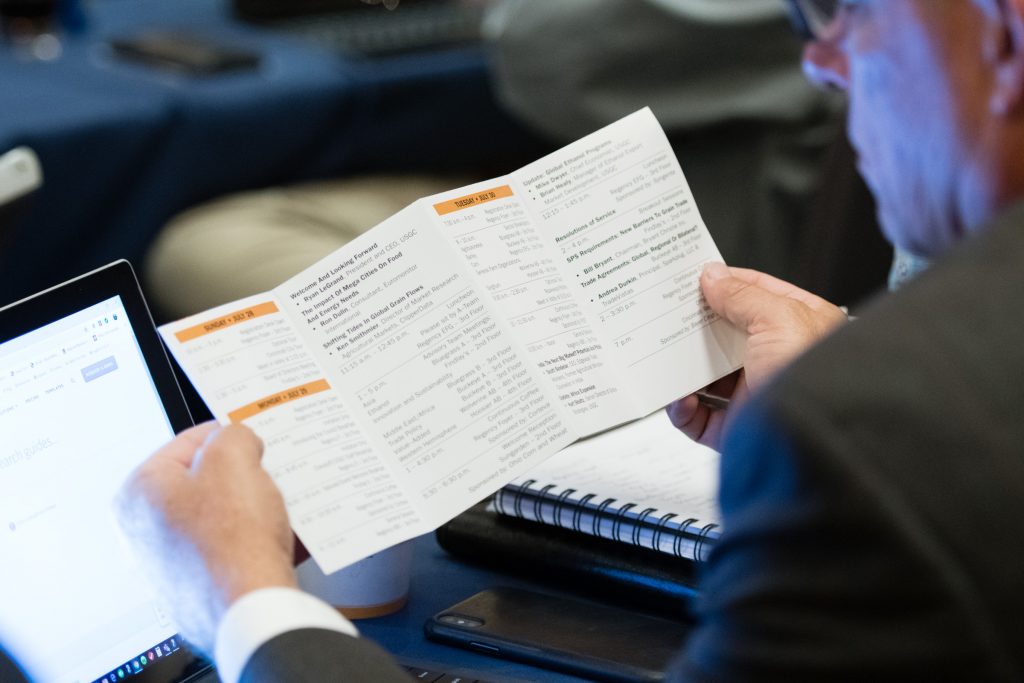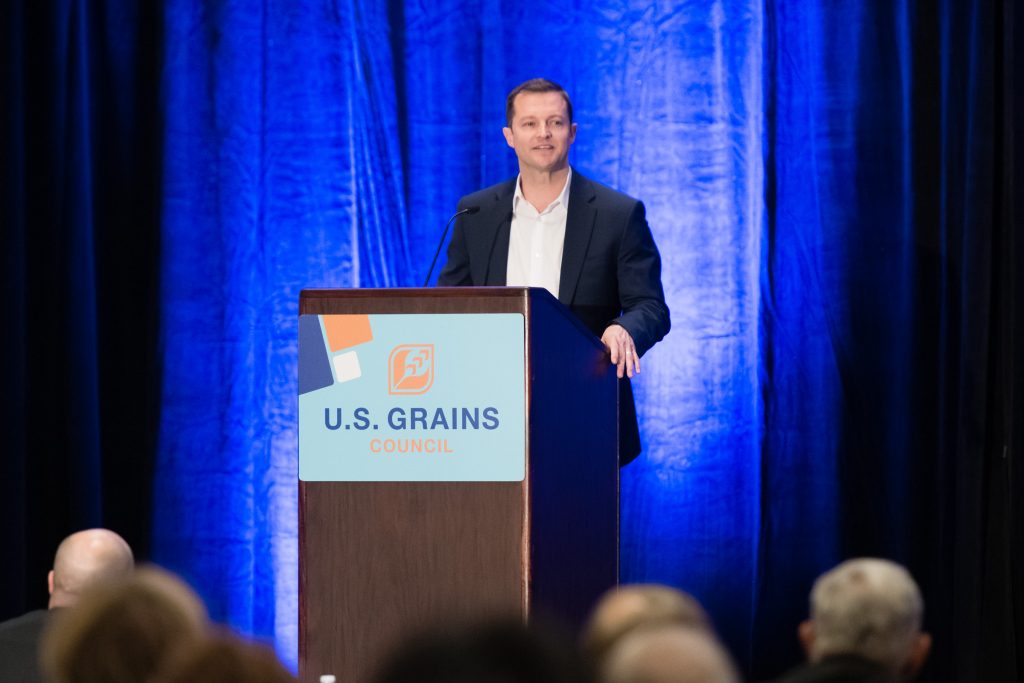At the 59th Annual Board of Delegates Meeting in Cincinnati, members and delegates of the U.S. Grains Council (USGC) examined major short-term and long-term market trends for U.S. feed grains before taking a deep dive into emerging markets in India, Africa and new opportunities for ethanol sales.
The meeting kicked off with a formal introduction of new USGC President and Chief Executive Officer Ryan LeGrand. LeGrand – who came to his new role in June from leading the Council’s Mexico office – expressed his measured enthusiasm about the Council’s role in finding new and more robust markets for U.S. grains with a $20 million allocation from the Agricultural Trade Promotion (ATP) program.
“We’ve had to learn to be nimble as markets change and grow, and we will need to meet this challenge continually as markets we work with will change even faster in the future,” LeGrand said. “And that’s what I envision the Council doing with the help of our staff around the world, our valued members, our friends and allies at the U.S. Department of Agriculture’s Foreign Agricultural Service and the U.S. Trade Representative’s Office.”
Ron Dulin, a consultant from Euromonitor International, and Ken Smithmier, director of market research for agricultural markets at ClipperData, gave keynotes reviewing trends in the marketplace of today and population growth that will drive future markets.
Dulin spoke on Euromonitor’s research into “megacities,” which will dominate economic growth and grain demands over the next 10 years. He explained how future food and energy demand will be driven in these areas of high population seeing rapidly increasing food consumption and need for better air quality.
Smithmier shared his firm’s research about global grain flows and how weather and intervening market forces will cause short-term and long-term effects with respect to agricultural products, namely grains and ethanol.
On Tuesday, the focus shifted from global trends to more in-depth examinations of emerging markets.
Scott Sindelar, CEO of Edgewise Trade Advisers and a former USDA Foreign Agricultural Service (FAS) official, shared his perspective on the potential market opportunities and current roadblocks for U.S. products in India.
Kurt Shultz, USGC senior director of global strategies, spoke on how the Council’s work is expanding into East and West Africa, building on longtime programs in North Africa, using resources from new funding sources including the ATP program.
“The Council works where the market does not,” Shultz said. “Africa and the Middle East show an opportunity for expansion of commercial feed production. We’ve worked in Morocco, Tunisia and East Africa, but with the availability of ATP funding, we’re planning on new programs in both East and West Africa.
The attendees also heard an ATP update from USGC Chief Economist Mike Dwyer and USGC Manager of Ethanol Export Market Development Brian Healy specifically on ethanol programs, which received the largest single portion of the Council’s ATP award of more than $20 million. This funding has allowed the Council to dramatically expand the scope and depth of its ethanol programs including technical assistance, policy development and in-country engagement.
“Growth in the middle class is driving changes in markets around the world,” Healy said. “ATP funding will allow us to scale up global engagement in emerging markets while continuing our engagement with mature markets that show near-term demand.”
During the meeting, the Council’s seven topical Advisory Teams (A-Teams) and five membership sectors also met and reported to the Board of Delegates.
The meeting also featured breakout sessions offering in-depth education on lost demand due to sanitary/phytosanitary incidences and the nuances and critical nature of various types of trade agreements.
More from the meeting is available on social media, using the hashtag #grains19.
About The U.S. Grains Council
The U.S. Grains Council develops export markets for U.S. barley, corn, sorghum and related products including distiller’s dried grains with solubles (DDGS) and ethanol. With full-time presence in 28 locations, the Council operates programs in more than 50 countries and the European Union. The Council believes exports are vital to global economic development and to U.S. agriculture’s profitability. Detailed information about the Council and its programs is online at www.grains.org.


